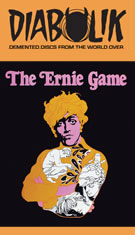

Color, 1967, 88 mins. 31 secs
Directed by Don Owen
Starring Alexis Kanner, Judith Gault, Jackie Burroughs, Derek May, Louis Negin, Leonard Cohen
Canadian International Pictures (Blu-ray) (US R0 HD) / WS (1.85:1) (16:9)


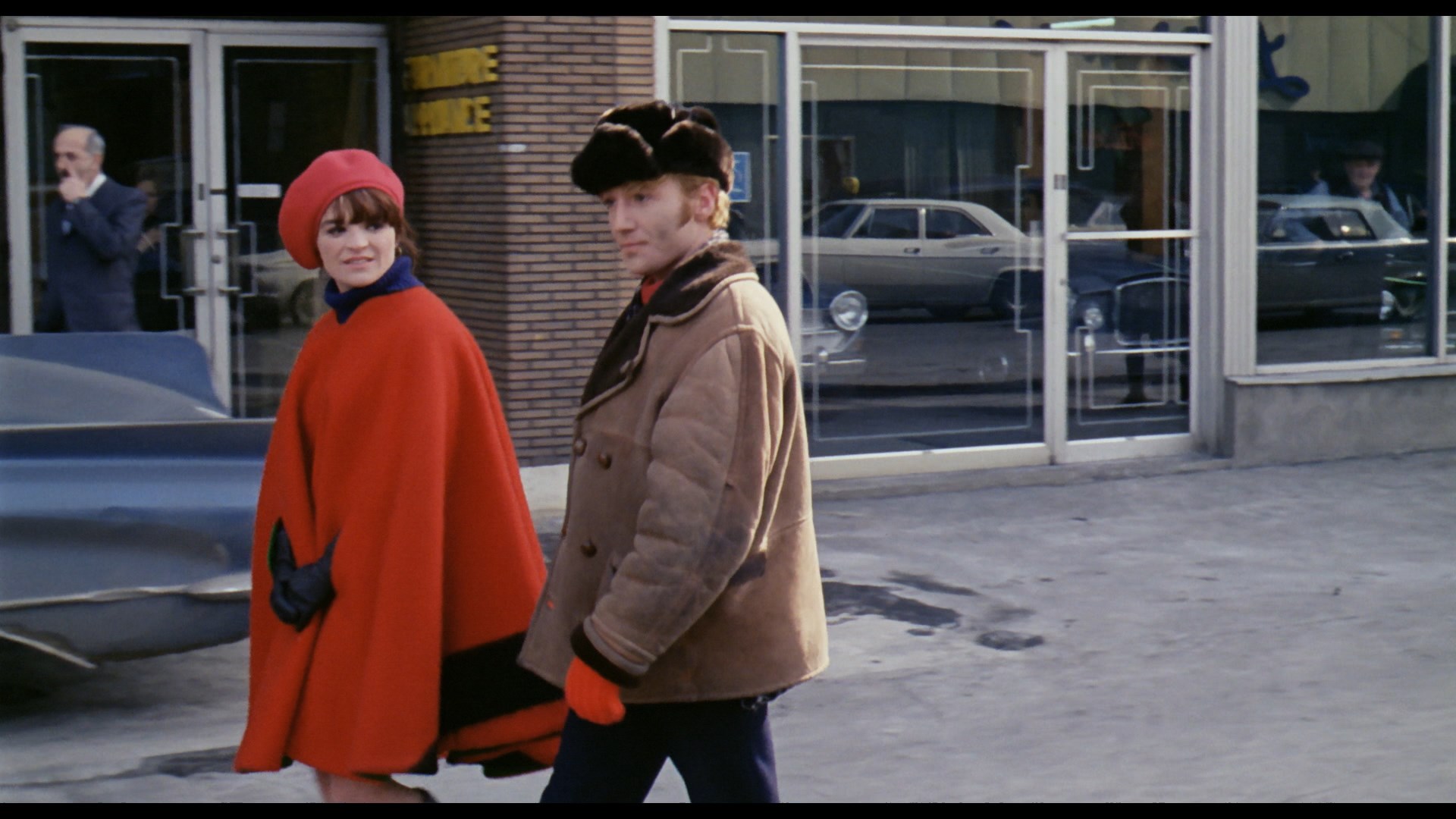 heyday of Canadian indie filmmaking from the
heyday of Canadian indie filmmaking from the  '60s through the mid-1980s has been sorely underrepresented on home video since its initial explosion on VHS. A lot of key films and overlooked treasures have completely fallen through the cracks since then, and even some significant titles have started to suffer from film element issues. One new company that looks like a welcome source to address that issue is Canadian International Pictures, which seems poised to give new life to films that often tread that fine line between art and exploitation. Its first offering, The Ernie Game, is a drama produced by the National Film Board of Canada and exhibited at Cannes in 1969. Unfortunately it didn't get much traction after that, but from both a cinematic and music standpoint it seems like a significant film that pointed the way for many things to come.
'60s through the mid-1980s has been sorely underrepresented on home video since its initial explosion on VHS. A lot of key films and overlooked treasures have completely fallen through the cracks since then, and even some significant titles have started to suffer from film element issues. One new company that looks like a welcome source to address that issue is Canadian International Pictures, which seems poised to give new life to films that often tread that fine line between art and exploitation. Its first offering, The Ernie Game, is a drama produced by the National Film Board of Canada and exhibited at Cannes in 1969. Unfortunately it didn't get much traction after that, but from both a cinematic and music standpoint it seems like a significant film that pointed the way for many things to come.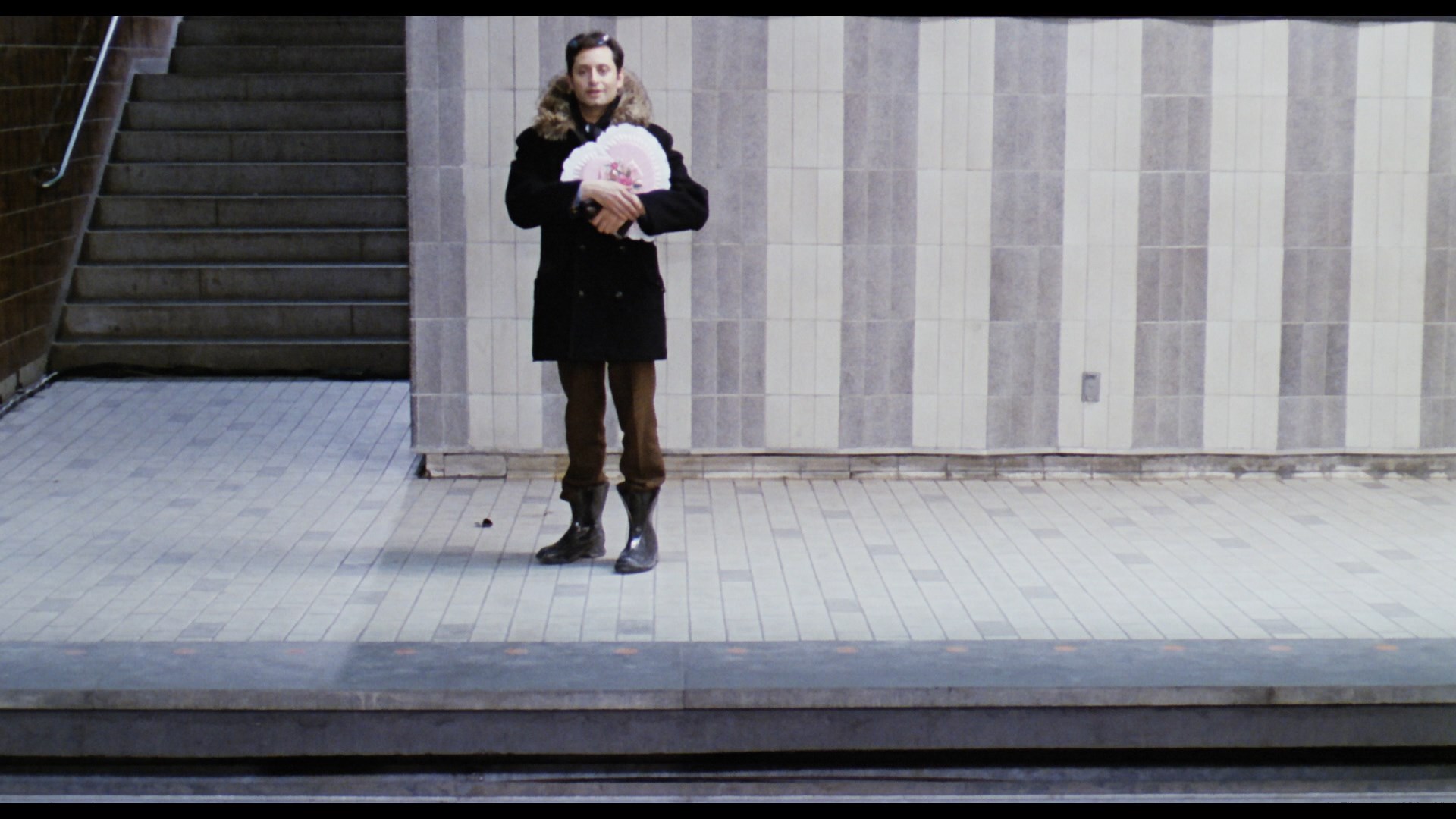 musical entertainment, but mostly he's fixated on the opposite sex-- be it a new fling with copy writer Donna (The Apprenticeship of Duddy Kravtiz's Gault) or a very volatile reunion with his ex Gail (The Dead Zone's Burroughs) and her
musical entertainment, but mostly he's fixated on the opposite sex-- be it a new fling with copy writer Donna (The Apprenticeship of Duddy Kravtiz's Gault) or a very volatile reunion with his ex Gail (The Dead Zone's Burroughs) and her 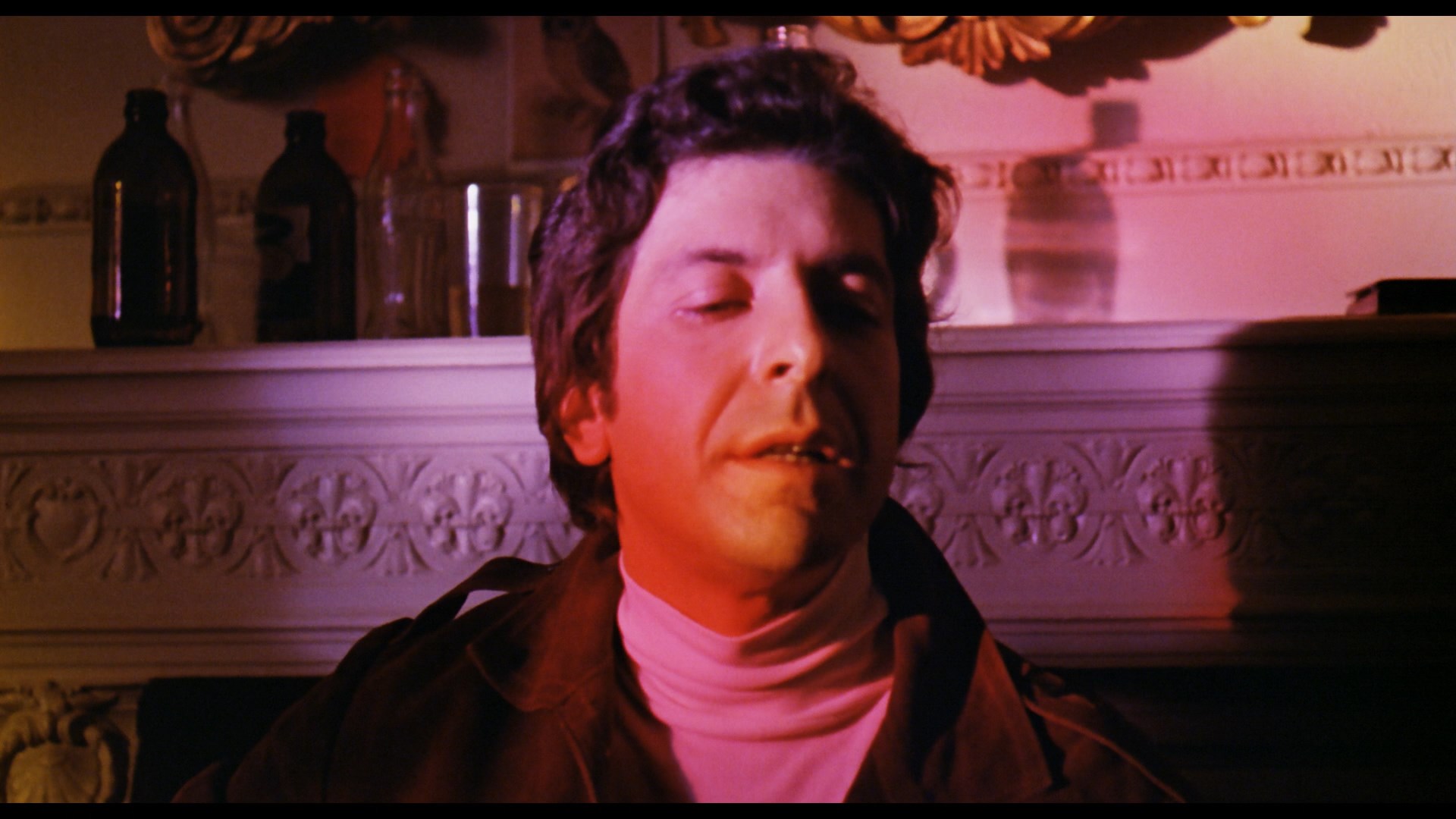 kid. Prone to self-destructive impulses but unable to take any responsibility for his life choices, Ernie seems to be spiraling in a downward direction as he tries to hang on to his creative dreams.
kid. Prone to self-destructive impulses but unable to take any responsibility for his life choices, Ernie seems to be spiraling in a downward direction as he tries to hang on to his creative dreams.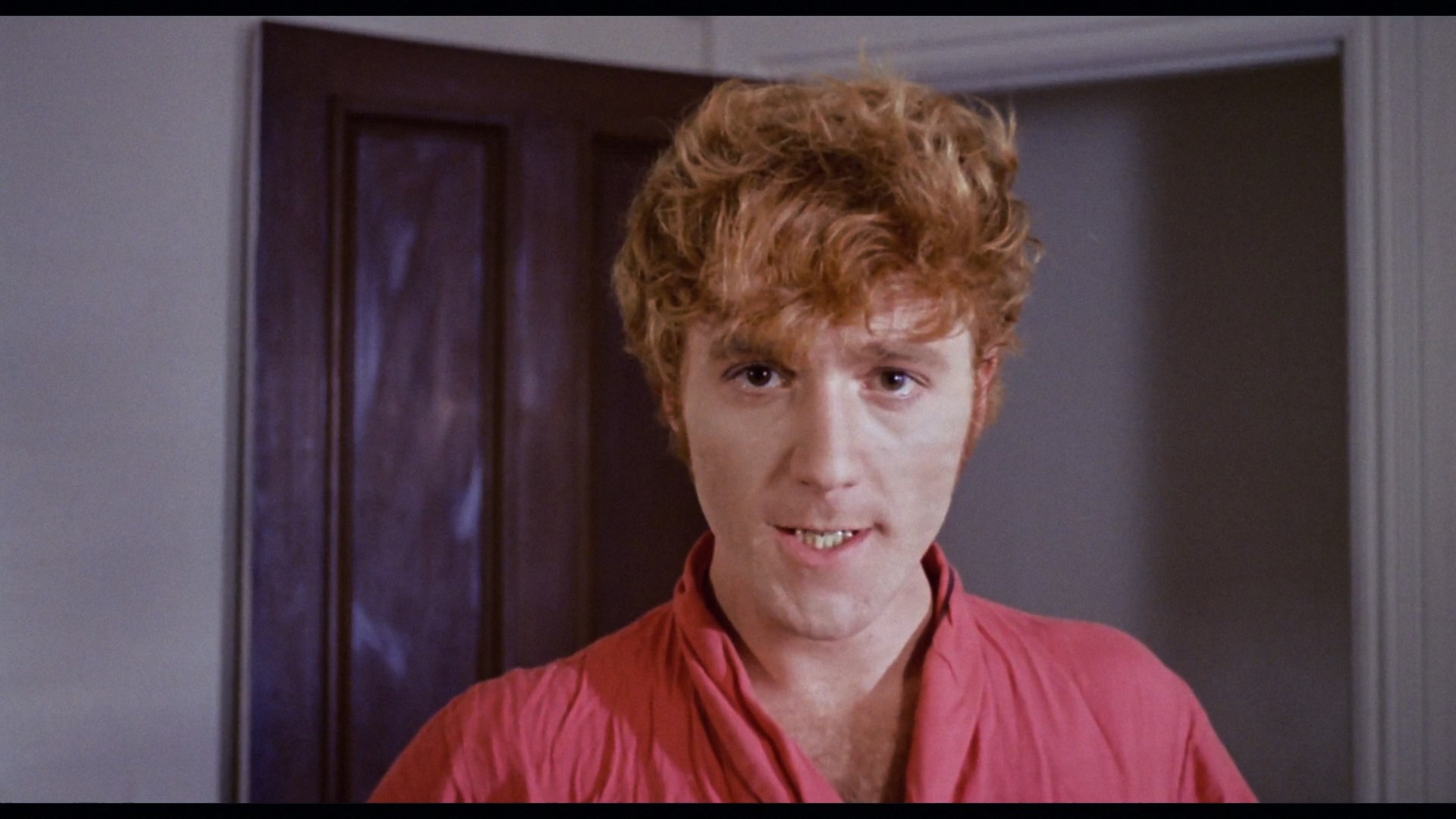 this film's restoration and reissue touts it as a forerunner to Taxi Driver, though you could easily draw a line to other films as well including Model Shop, Five Easy Pieces, and even more recent ones like Garden State and Red Rocket. It was also ahead
this film's restoration and reissue touts it as a forerunner to Taxi Driver, though you could easily draw a line to other films as well including Model Shop, Five Easy Pieces, and even more recent ones like Garden State and Red Rocket. It was also ahead 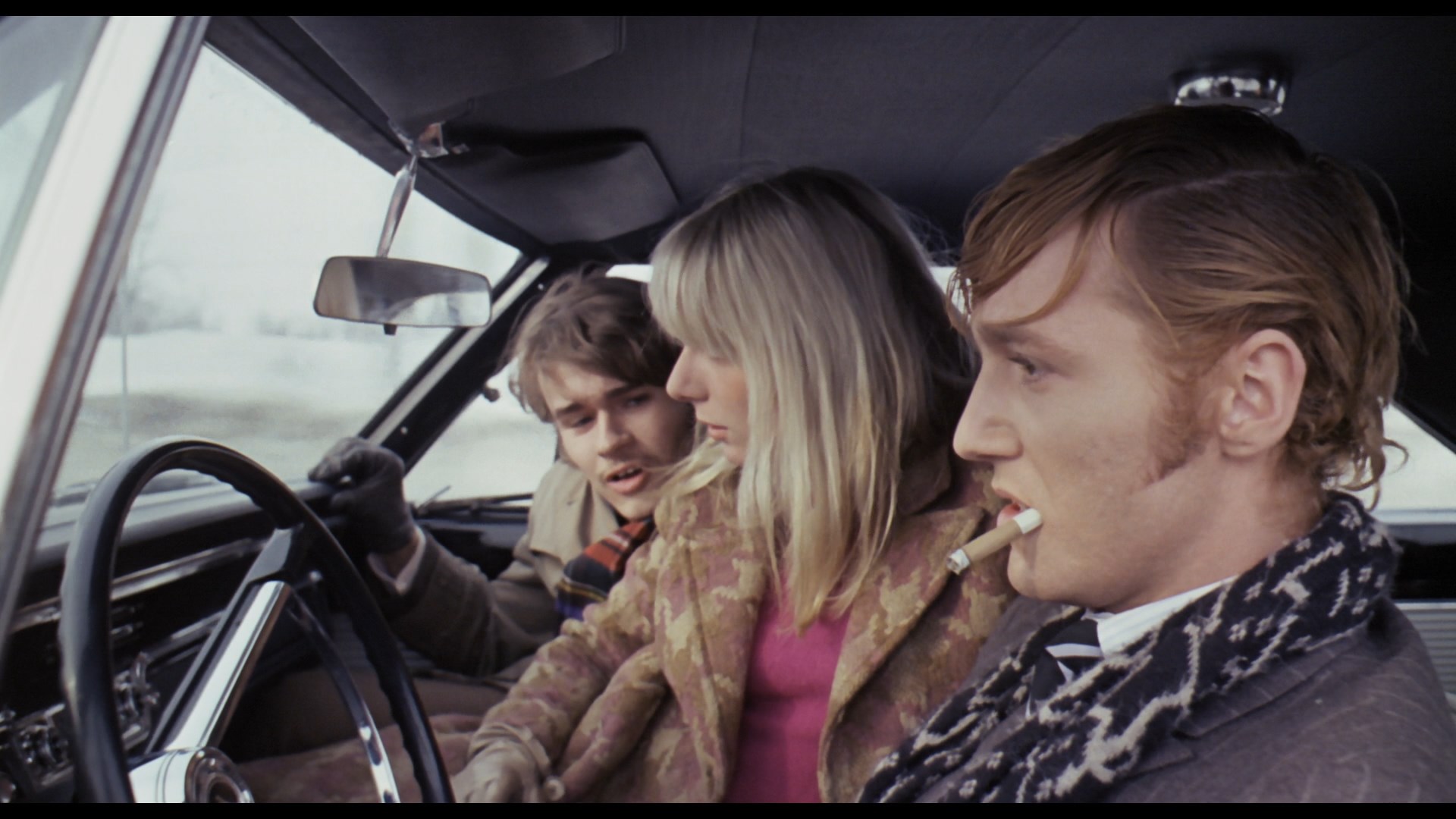 of the curve of the wave of "disconnected young man" films that U.S. studios scrambling to churn out in the early '70s, most inspired by British kitchen sink realism and ignored at the box office (like Cover Me Babe and Jennifer on My Mind).
of the curve of the wave of "disconnected young man" films that U.S. studios scrambling to churn out in the early '70s, most inspired by British kitchen sink realism and ignored at the box office (like Cover Me Babe and Jennifer on My Mind).  centered around an idyllic boat passenger. Also included are four bonus shorts directed by Owen: High Steel (1965, 13m54s), a look at
centered around an idyllic boat passenger. Also included are four bonus shorts directed by Owen: High Steel (1965, 13m54s), a look at 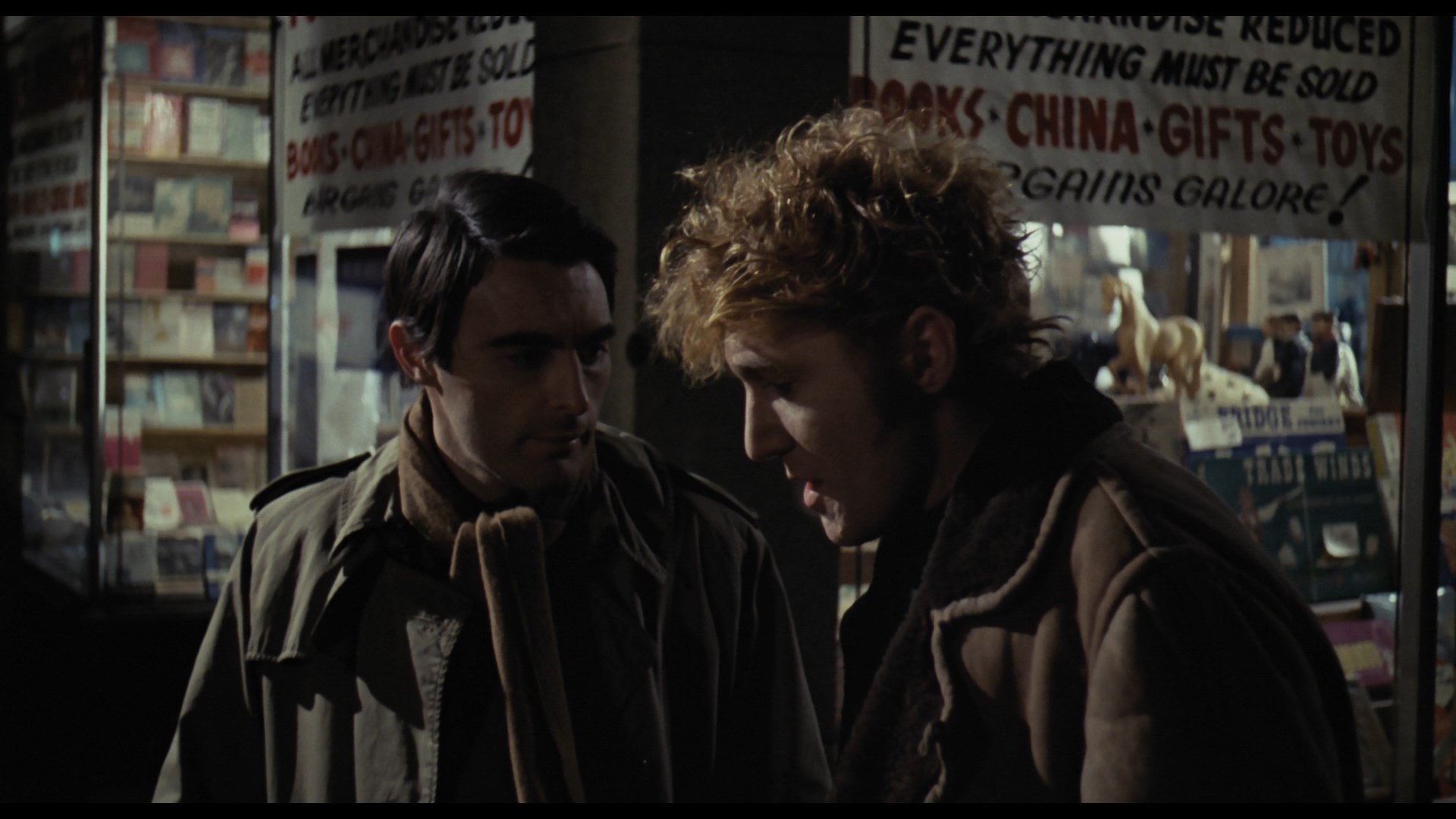 Canadian iron workers told from the point of view of a First Nations employee; Ladies and Gentlemen, Mr. Leonard Cohen (1965, 44m14s), a snapshot of the legendary ]singer-songwriter co-directed by Donald Brittain, here focusing on his time in Montreal as a poet, novelist, and public speaker given he hadn't released his first album yet; Notes for a Film About Donna & Gail (1966, 48m44s), a fictional look at two young roomies (played by Burroughs and Michele Chicoine) whose characters would recur in the main feature and are seen here juggling their dreams and day jobs as their friendship ebbs under the observation of a questionable narrator; and A Further Glimpse of Joey (1966, 28m1s), a matter-of-fact depiction of a young boy adjusting to life in his adopted home ranging from a boat trip with his new dad to days spent wandering alone in his neighborhood. An insert booklet features an essay by Steve Gravestock, "Reaching for the Sky Just to Surrender," offering a well-researching overview of Owen's career, the film's rocky reception at its production home, and some interesting possible readings of the main character's psyche.
Canadian iron workers told from the point of view of a First Nations employee; Ladies and Gentlemen, Mr. Leonard Cohen (1965, 44m14s), a snapshot of the legendary ]singer-songwriter co-directed by Donald Brittain, here focusing on his time in Montreal as a poet, novelist, and public speaker given he hadn't released his first album yet; Notes for a Film About Donna & Gail (1966, 48m44s), a fictional look at two young roomies (played by Burroughs and Michele Chicoine) whose characters would recur in the main feature and are seen here juggling their dreams and day jobs as their friendship ebbs under the observation of a questionable narrator; and A Further Glimpse of Joey (1966, 28m1s), a matter-of-fact depiction of a young boy adjusting to life in his adopted home ranging from a boat trip with his new dad to days spent wandering alone in his neighborhood. An insert booklet features an essay by Steve Gravestock, "Reaching for the Sky Just to Surrender," offering a well-researching overview of Owen's career, the film's rocky reception at its production home, and some interesting possible readings of the main character's psyche.![]()